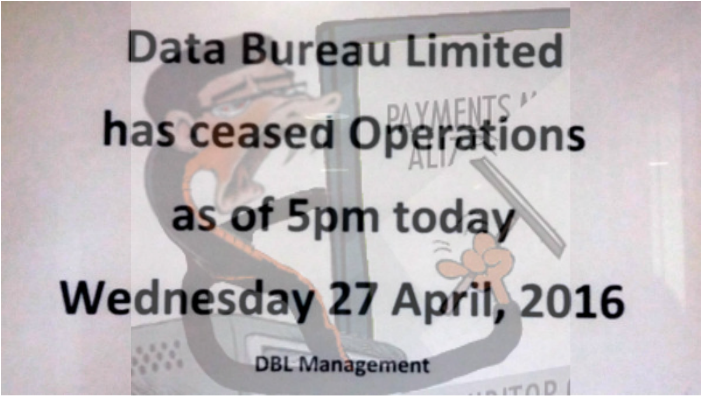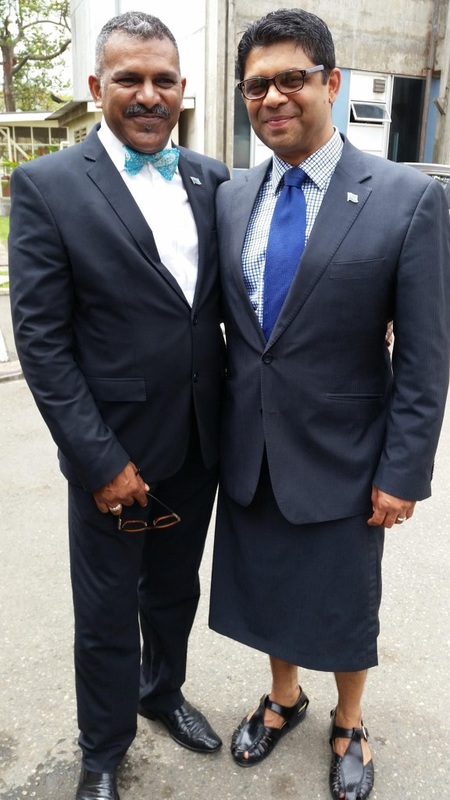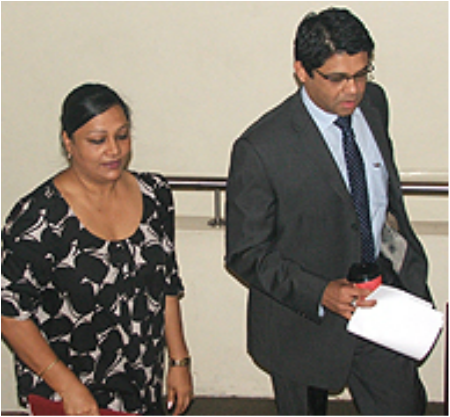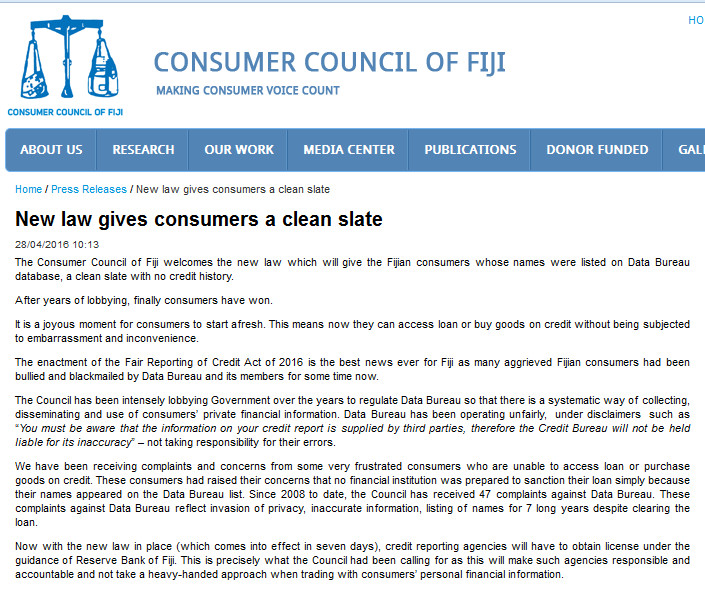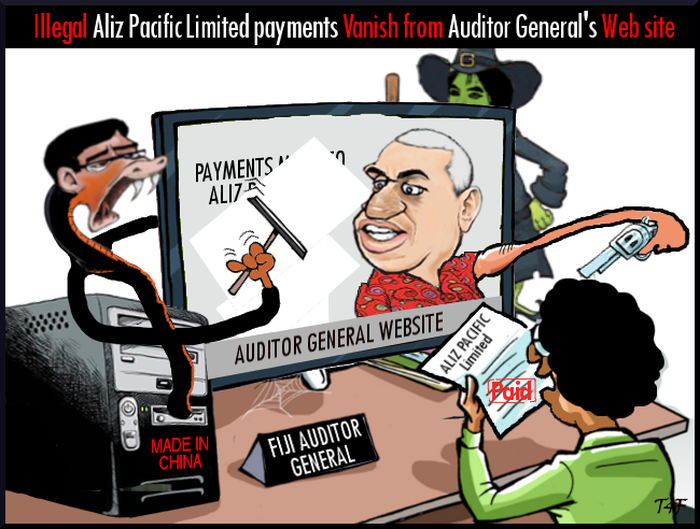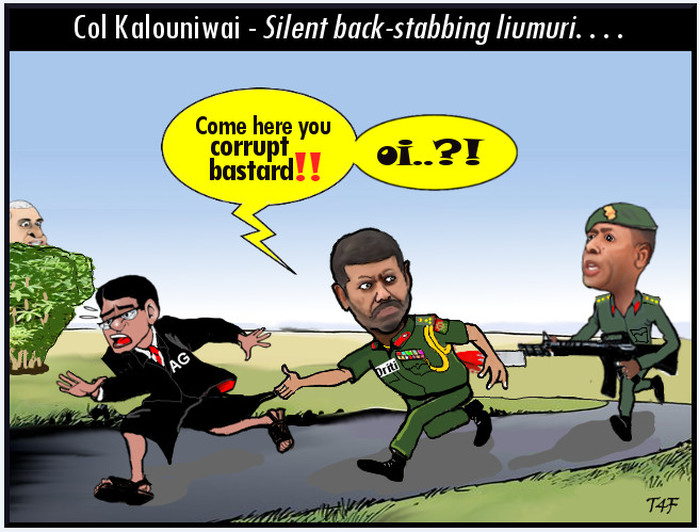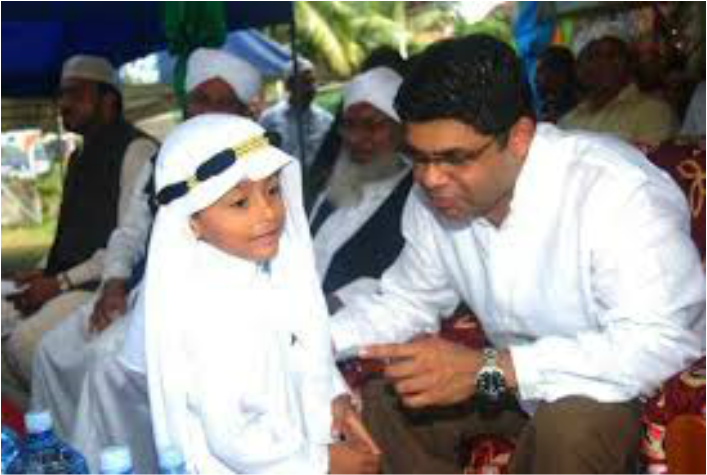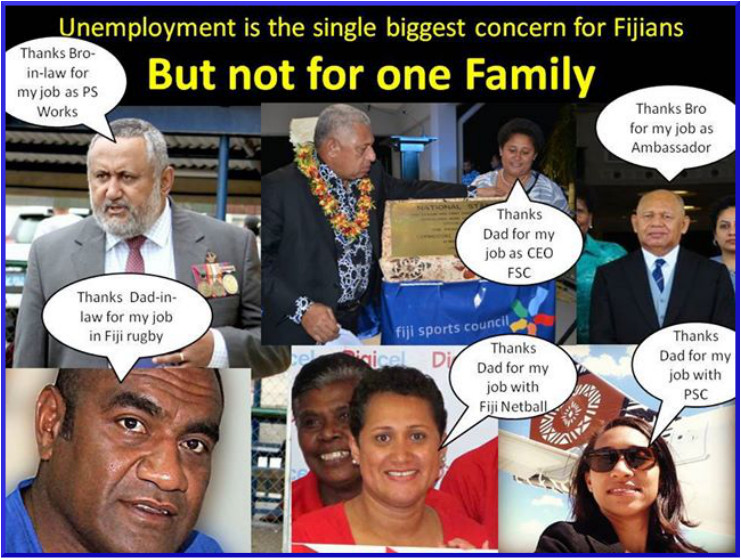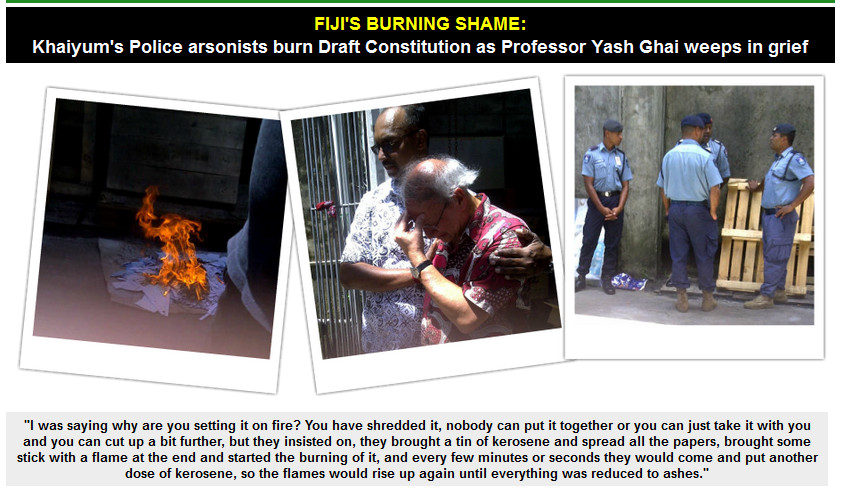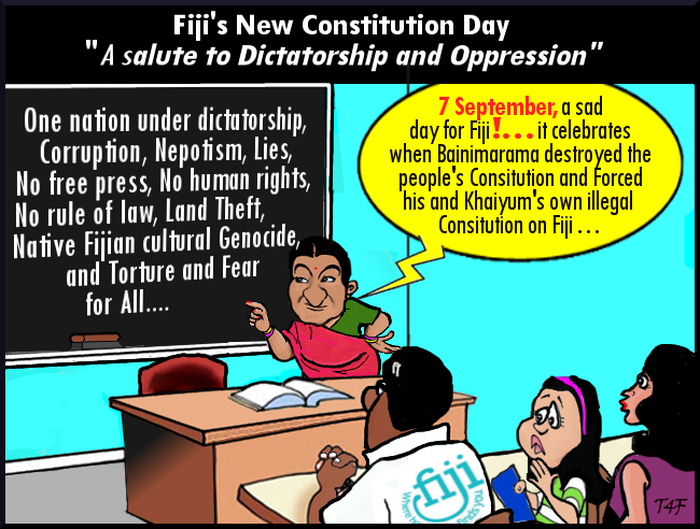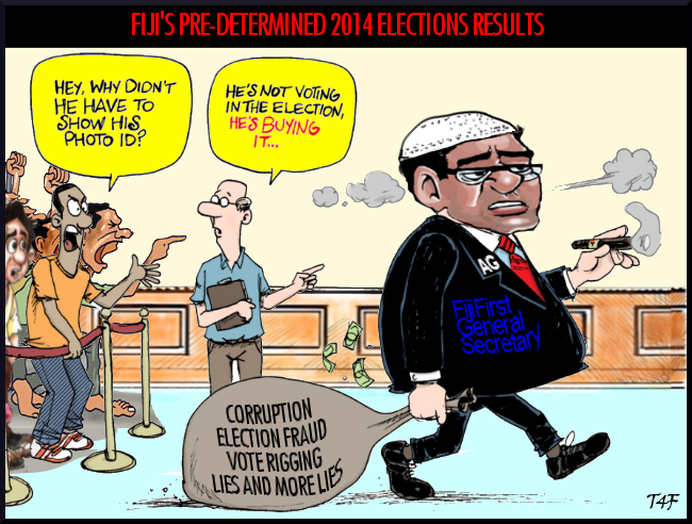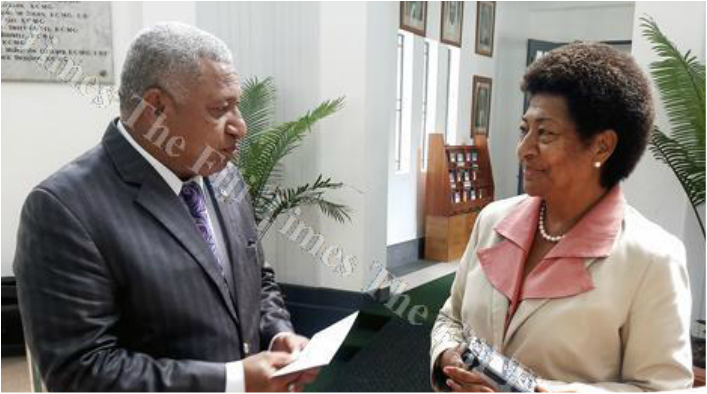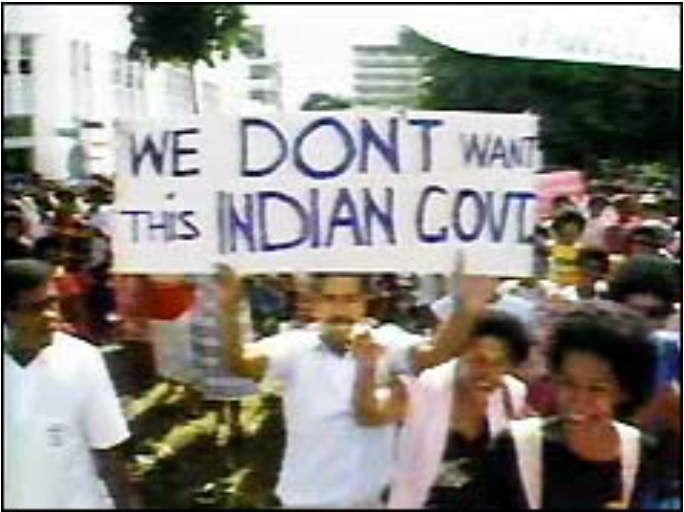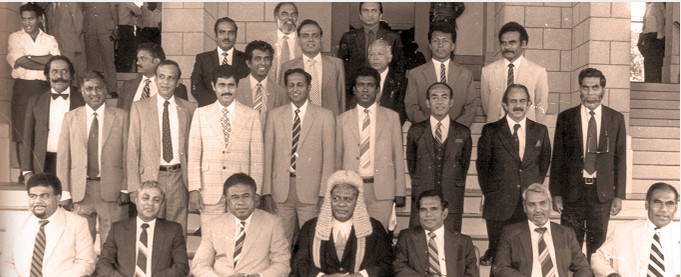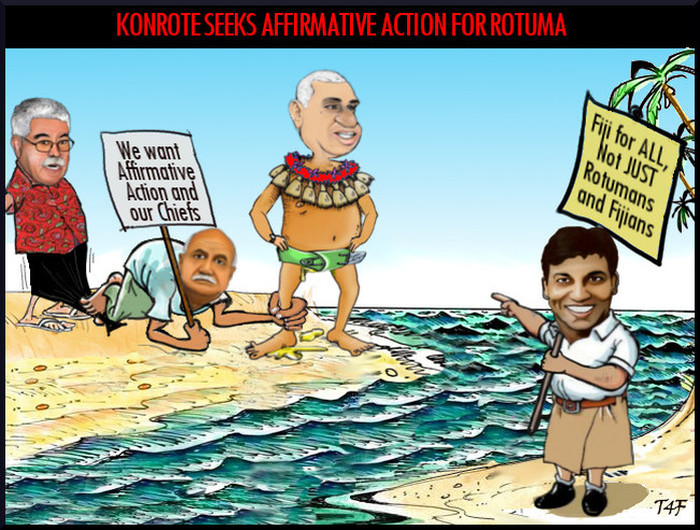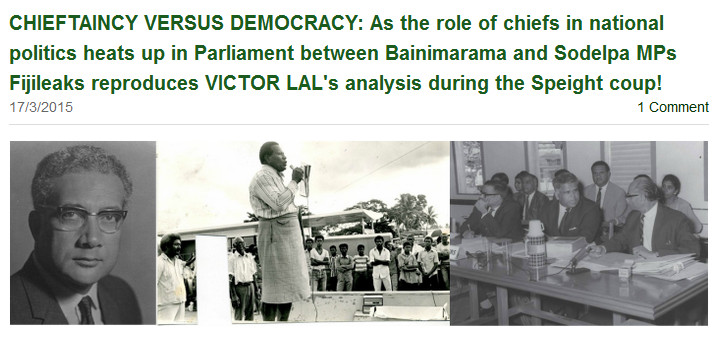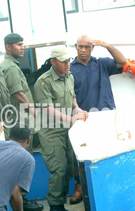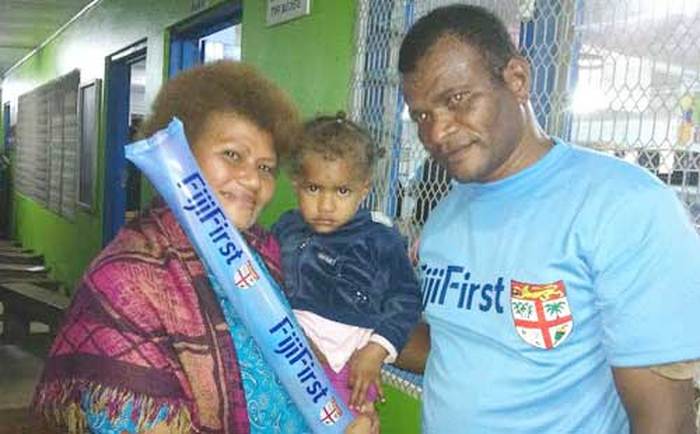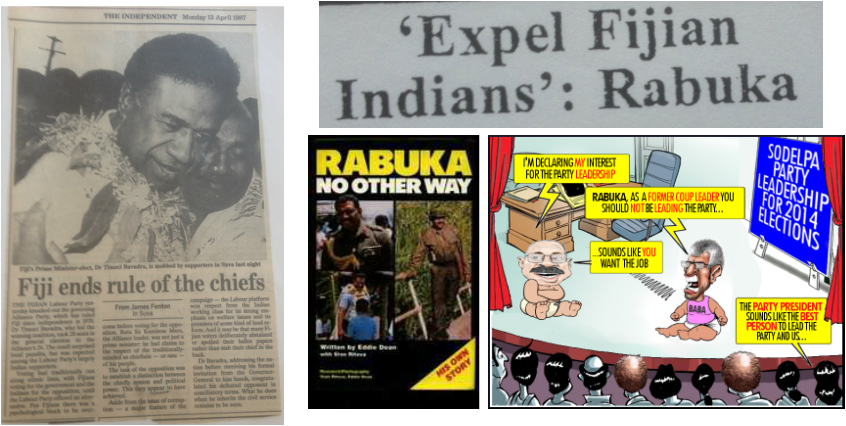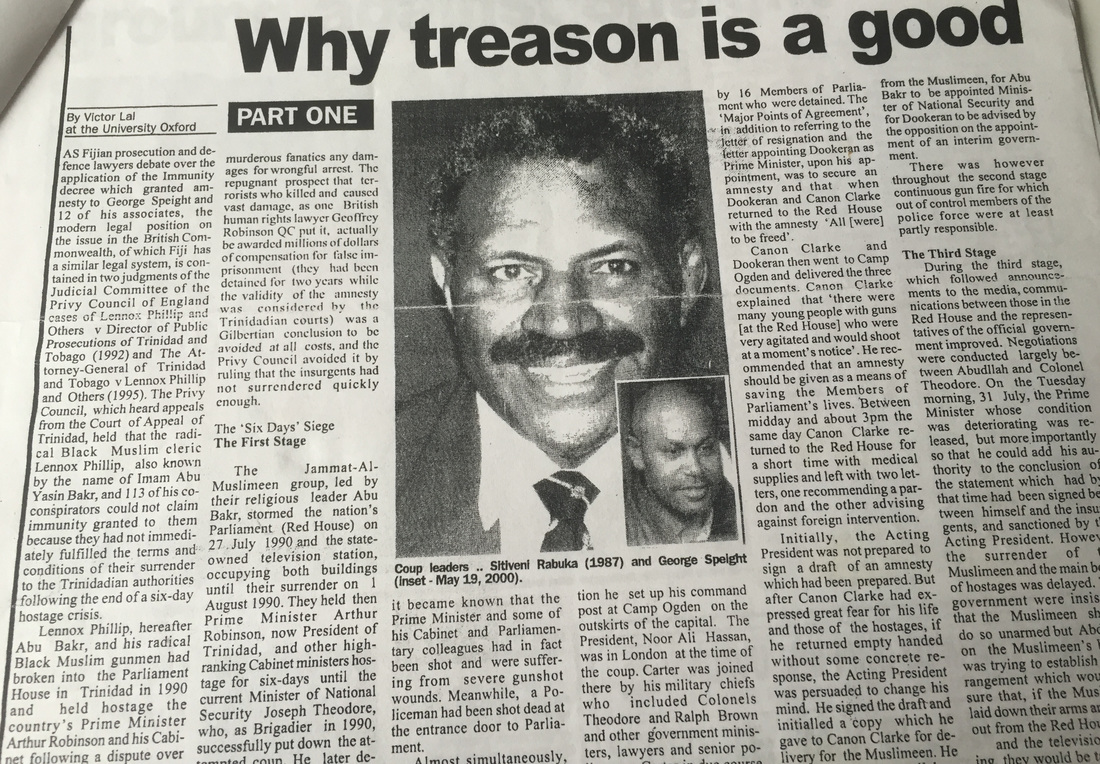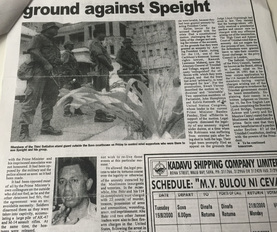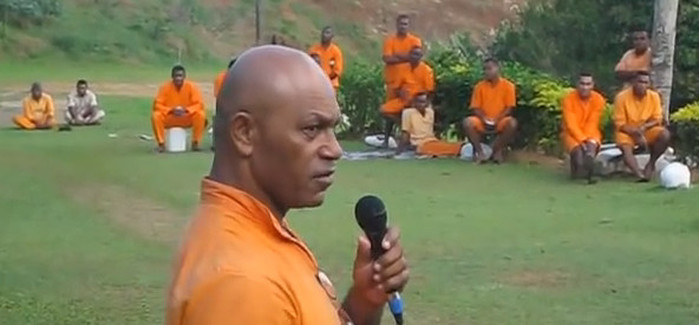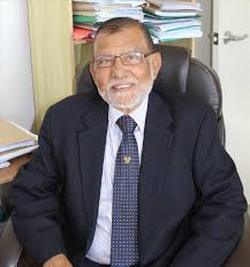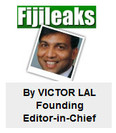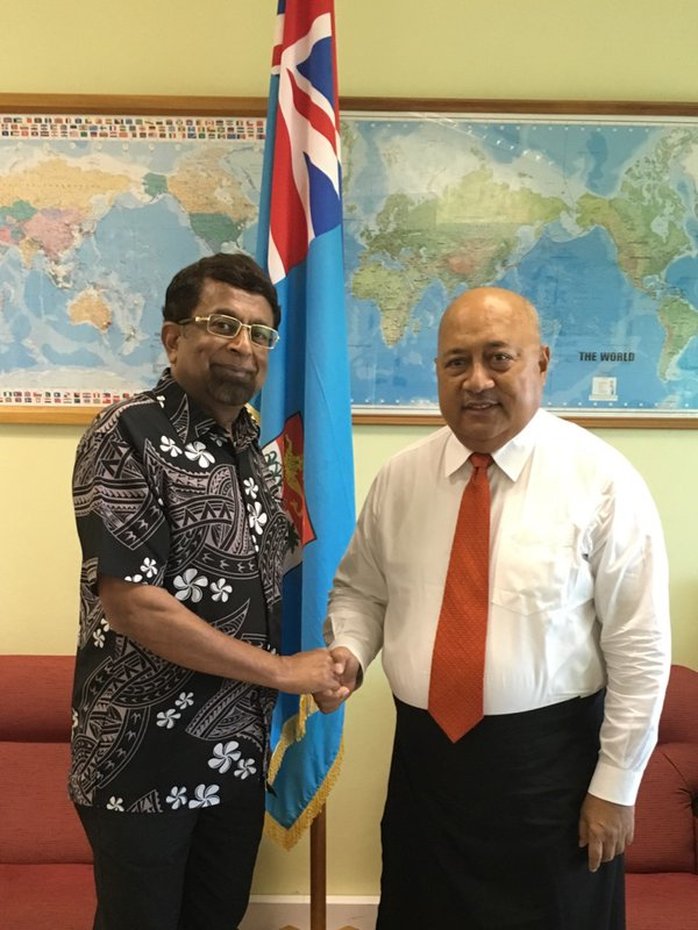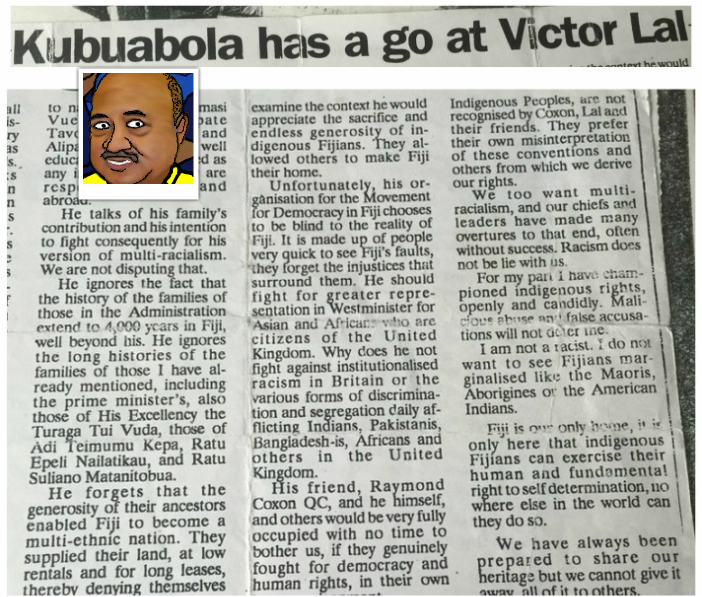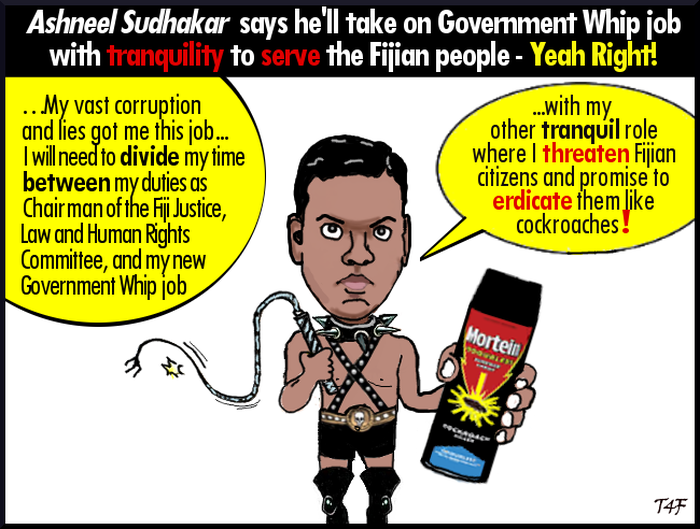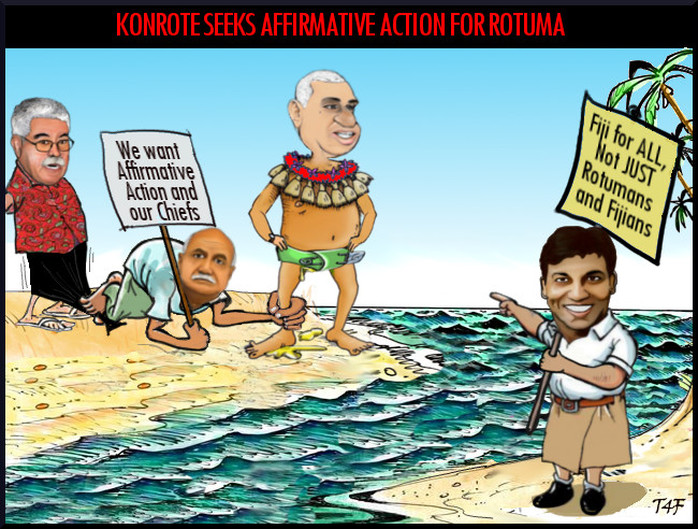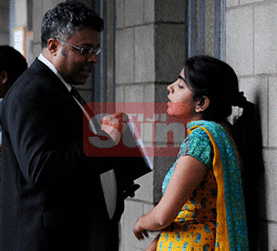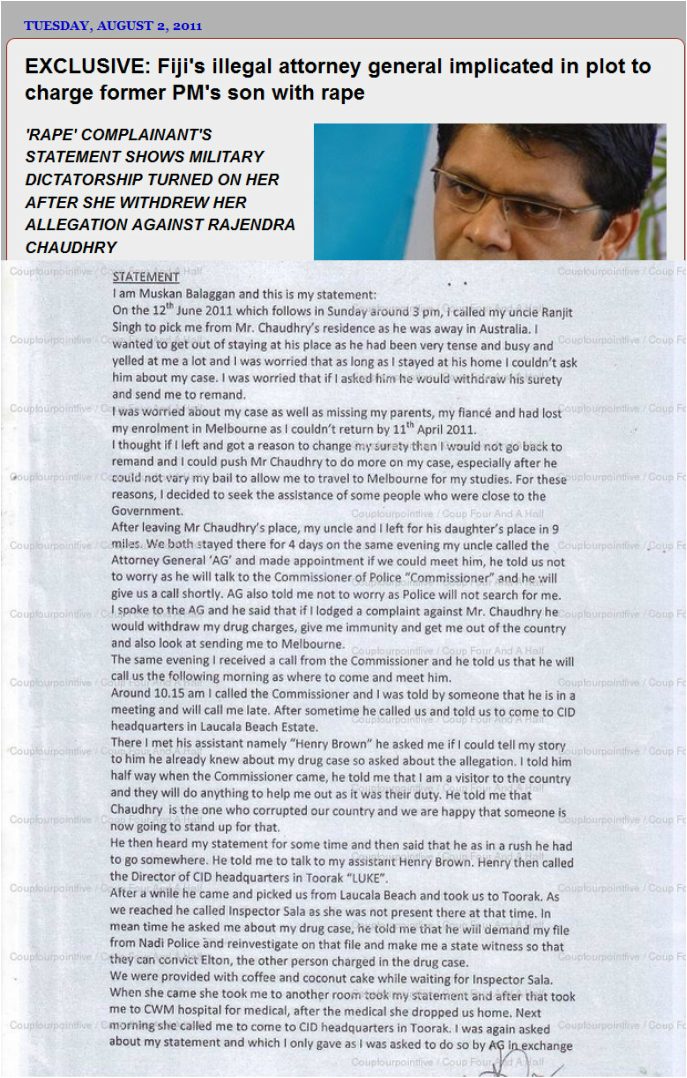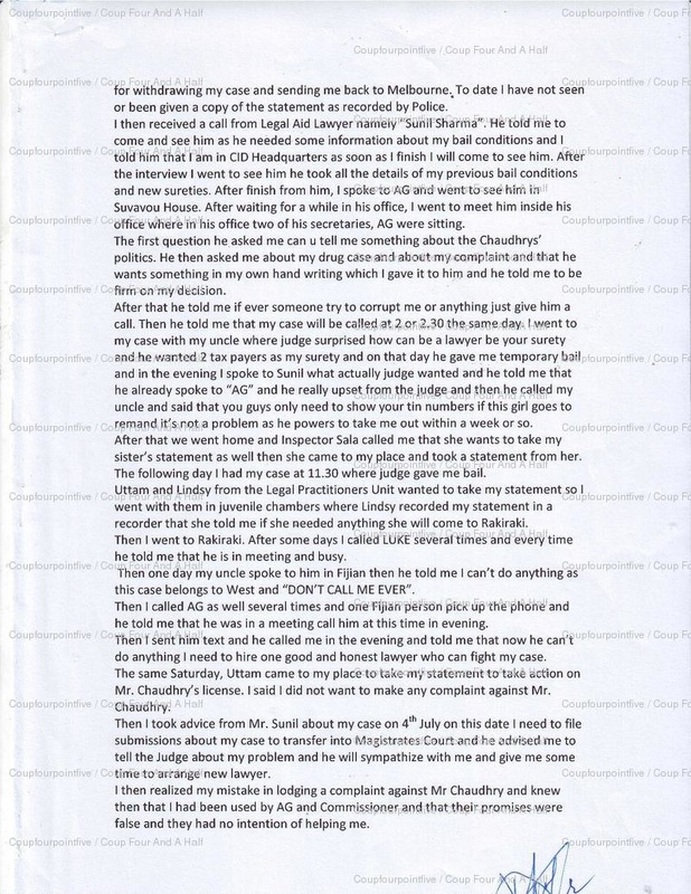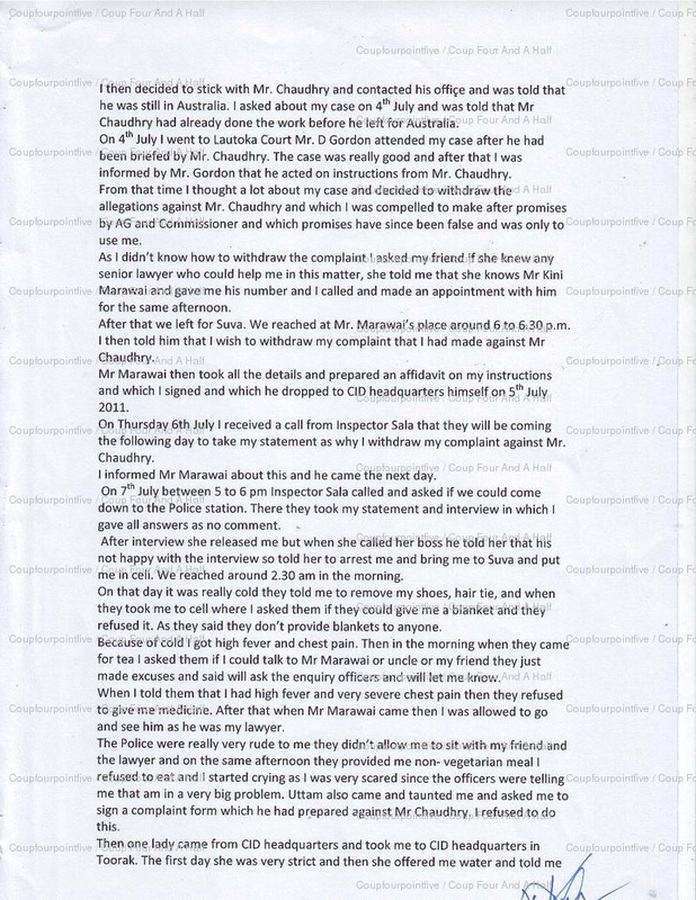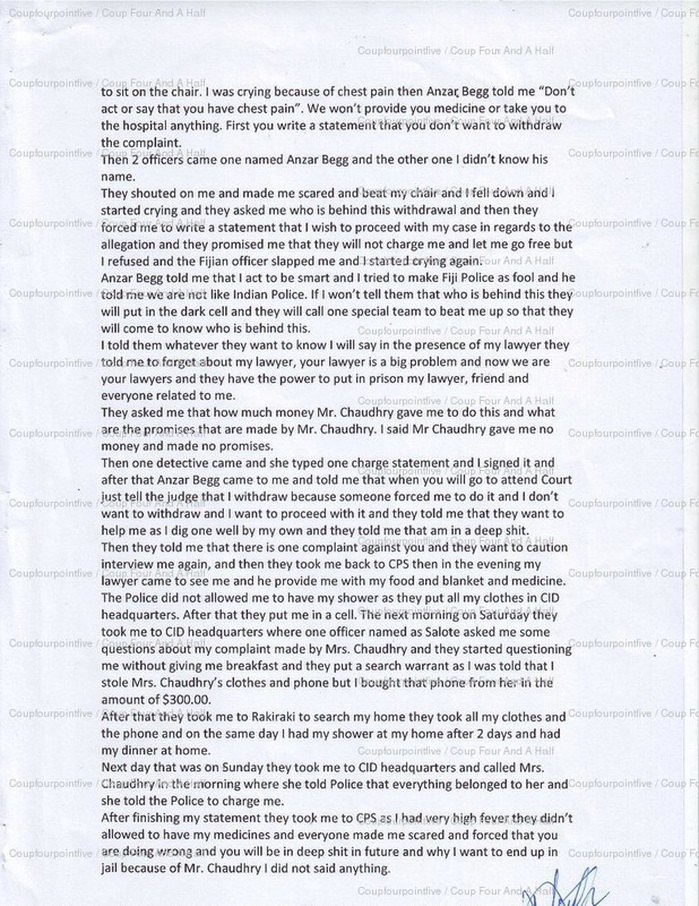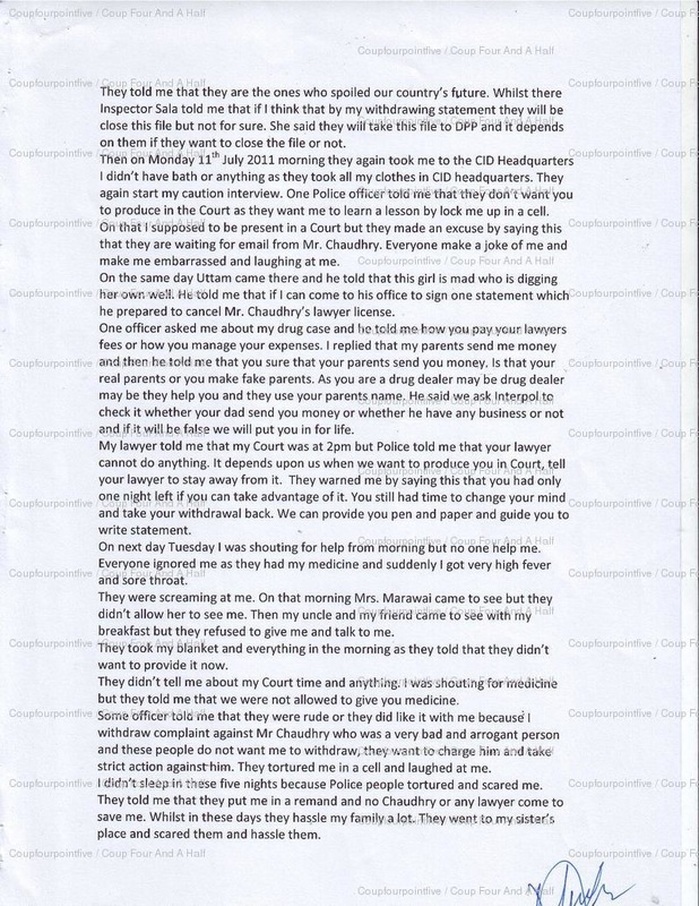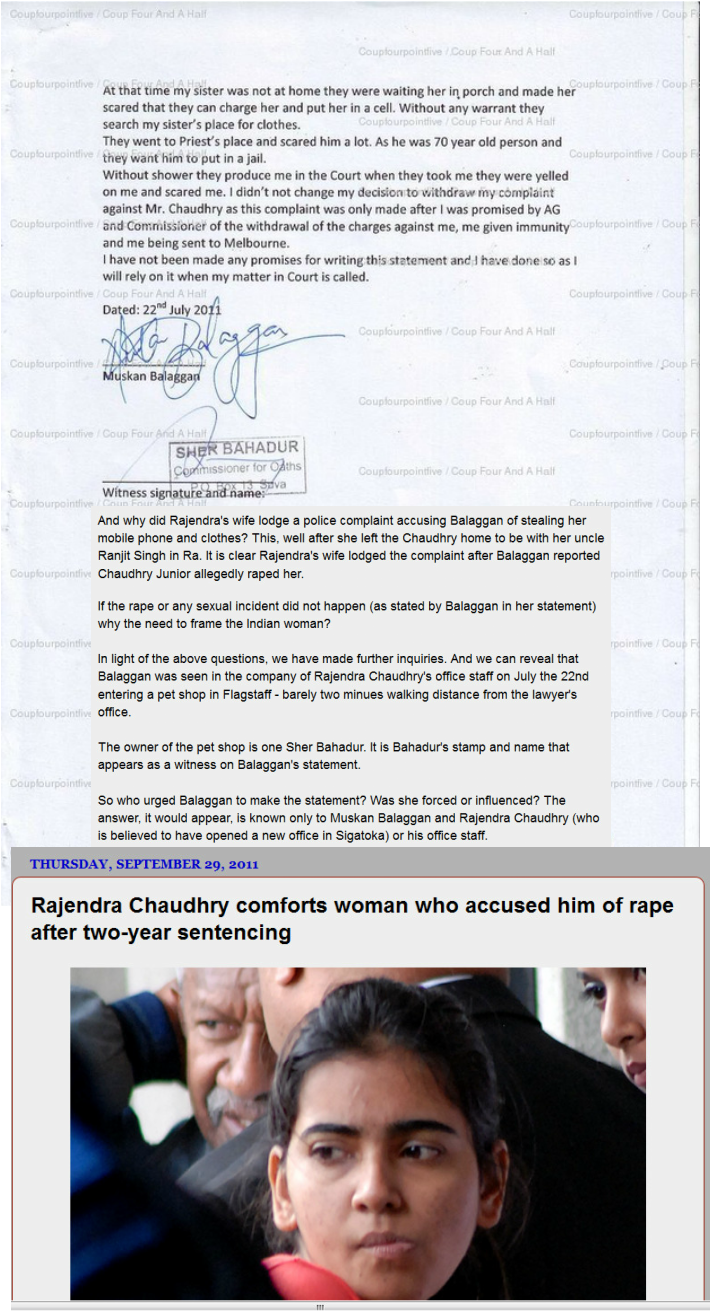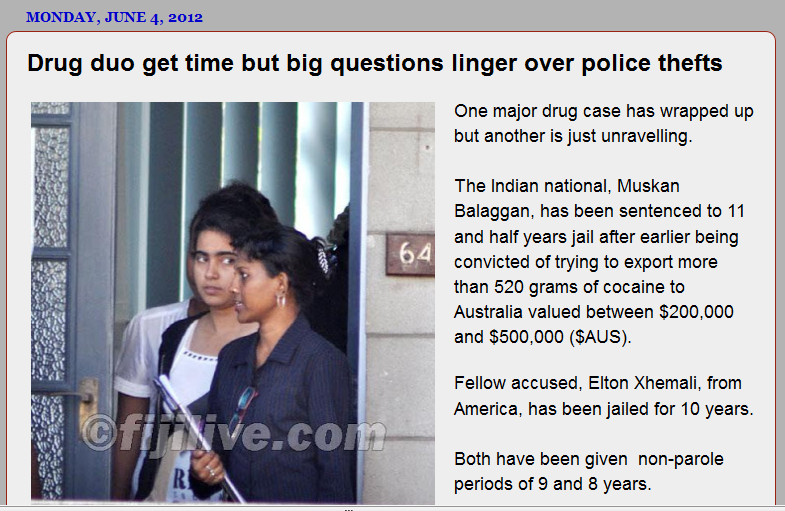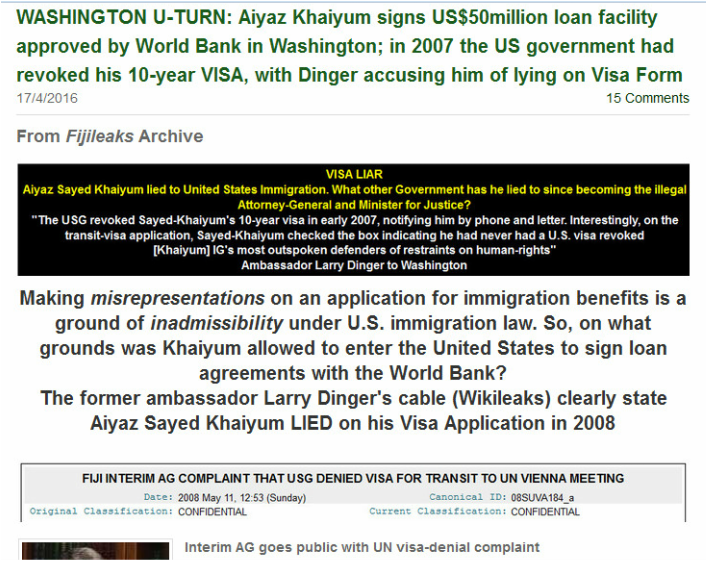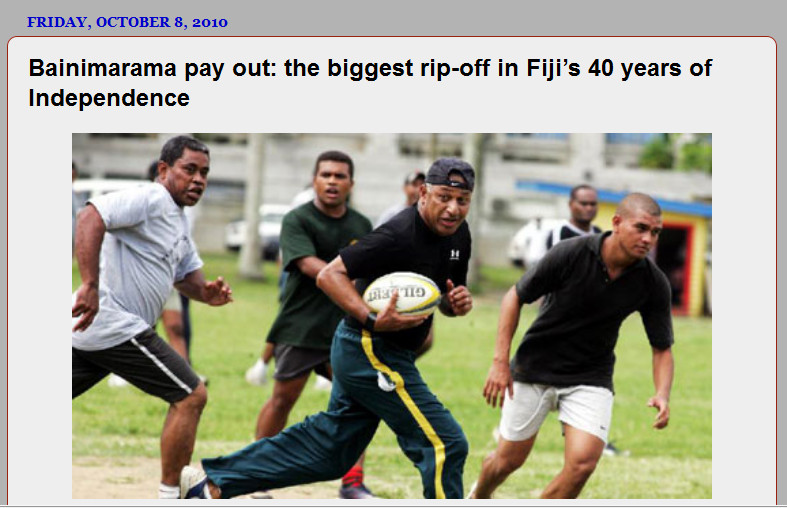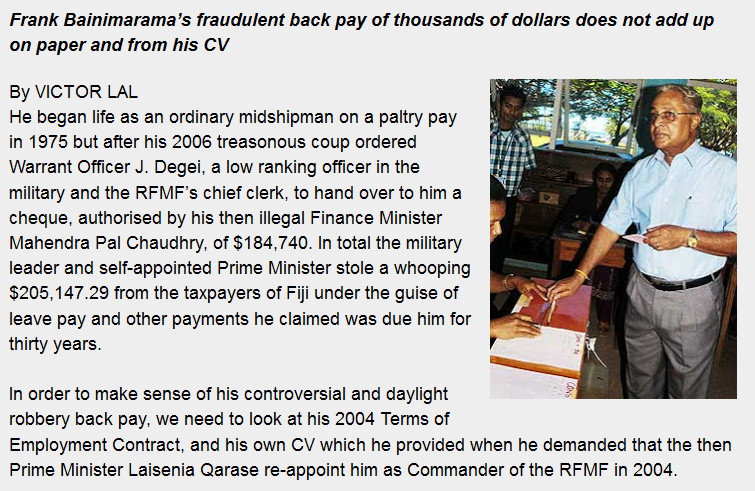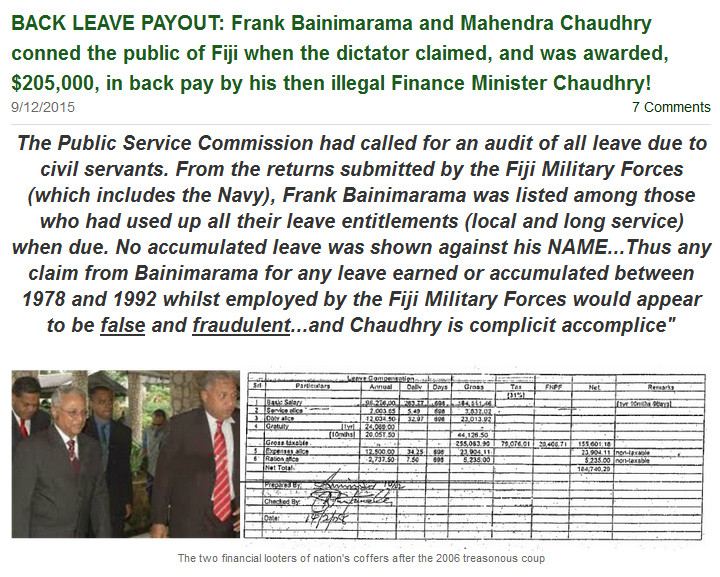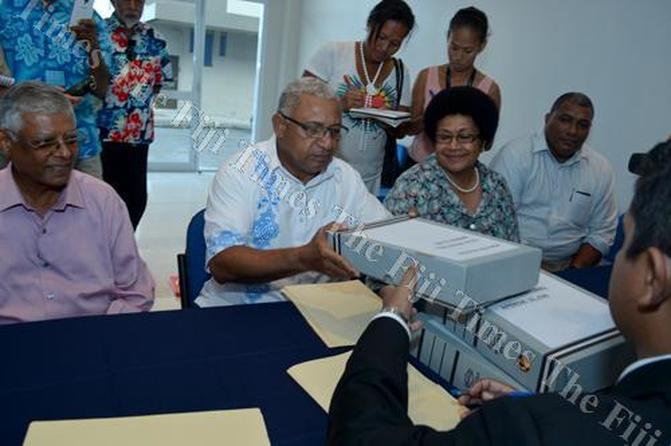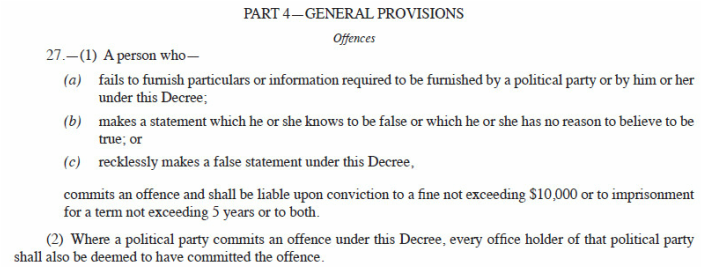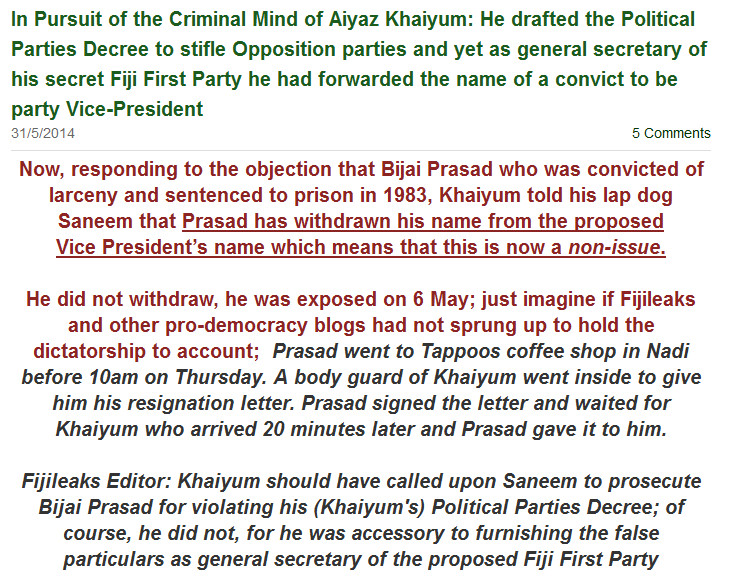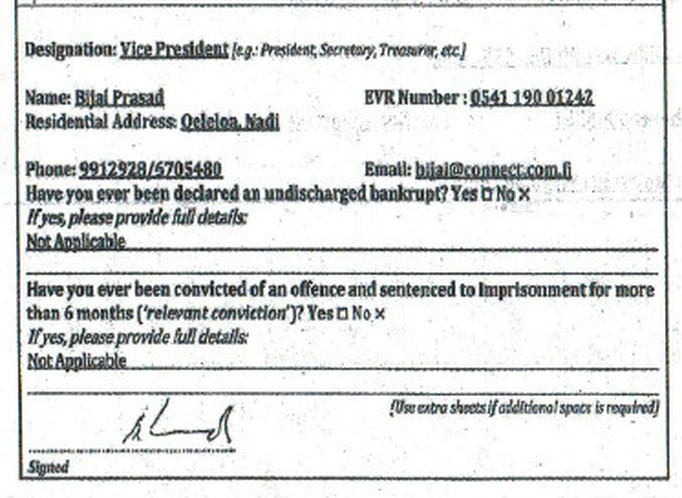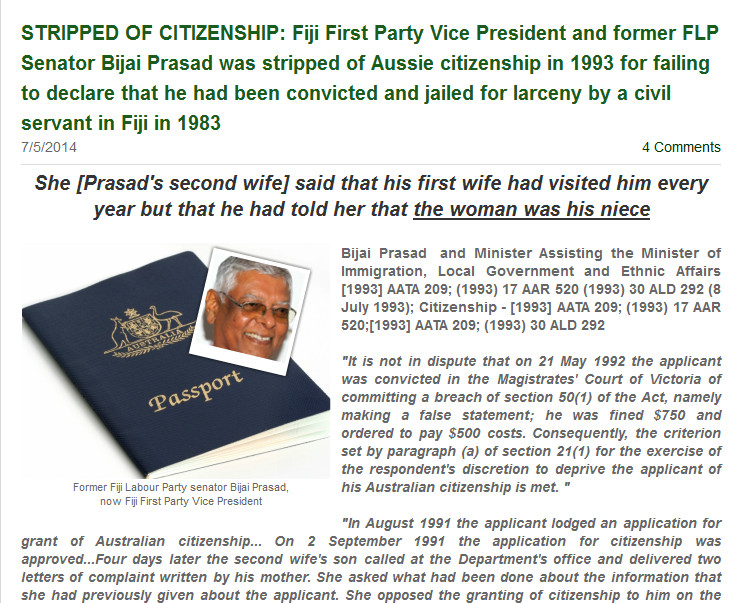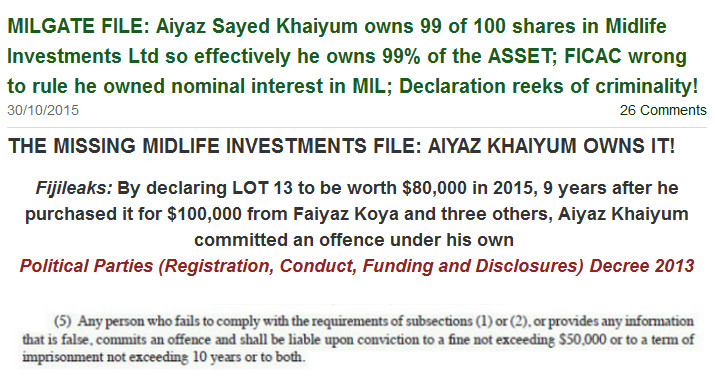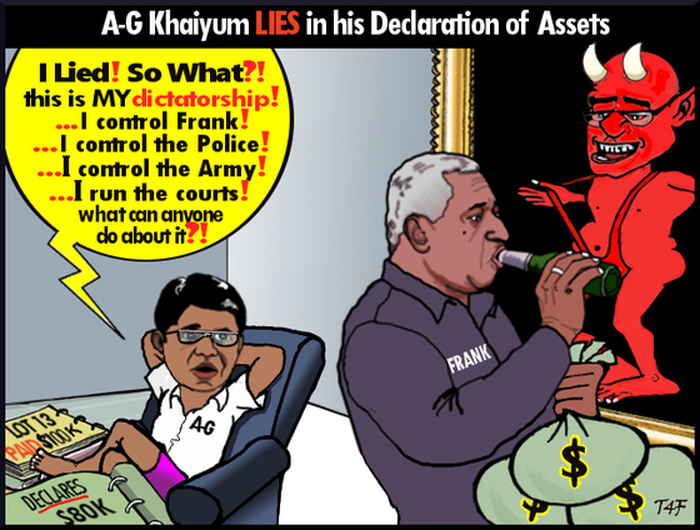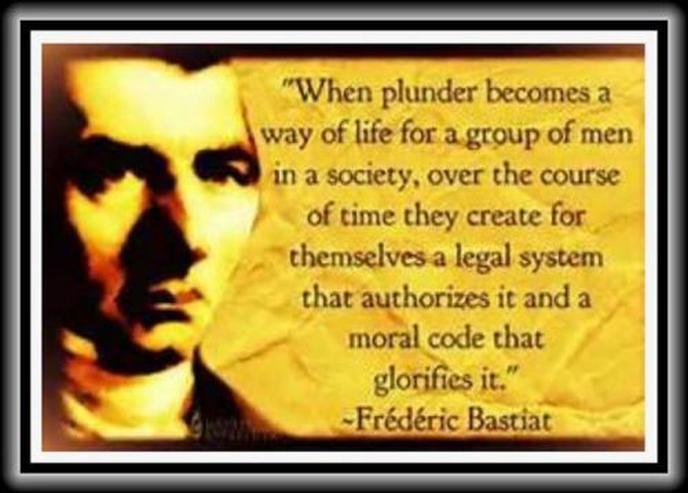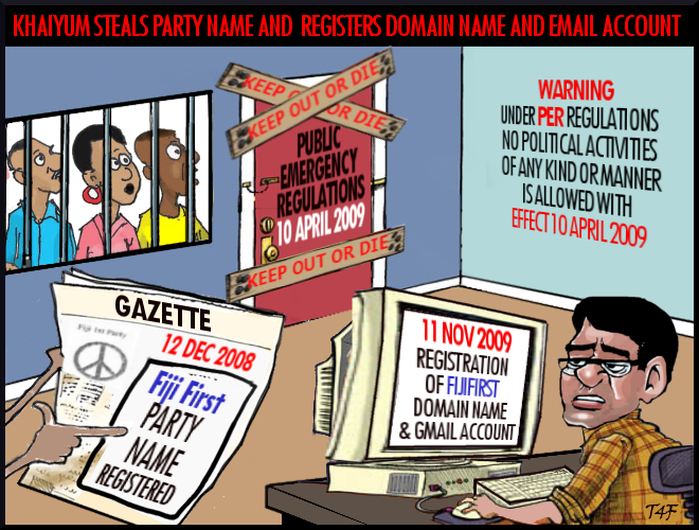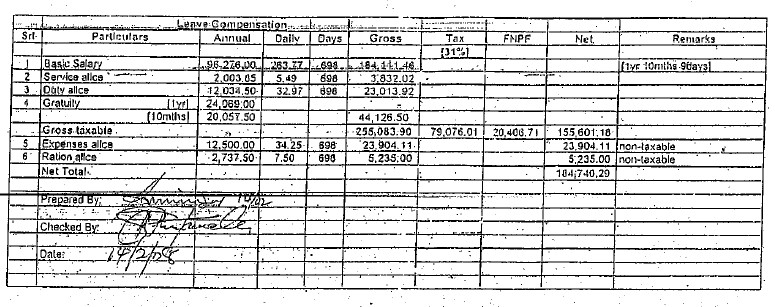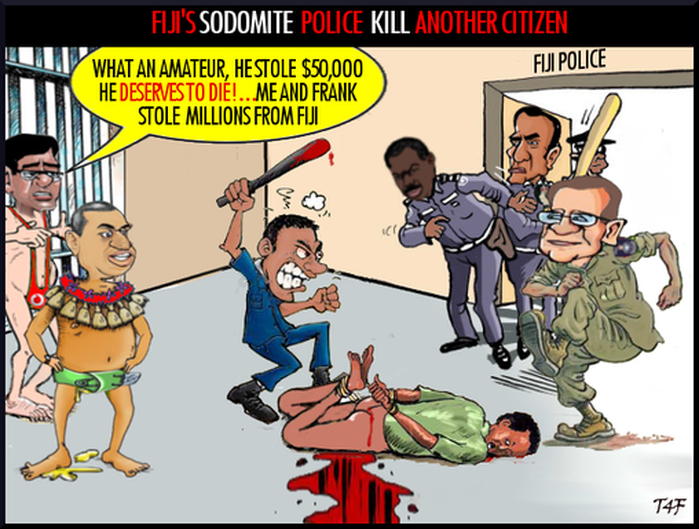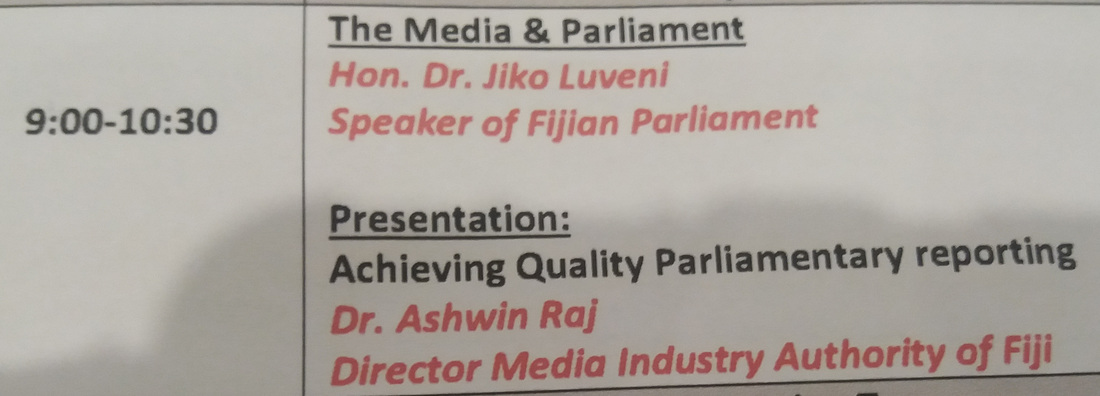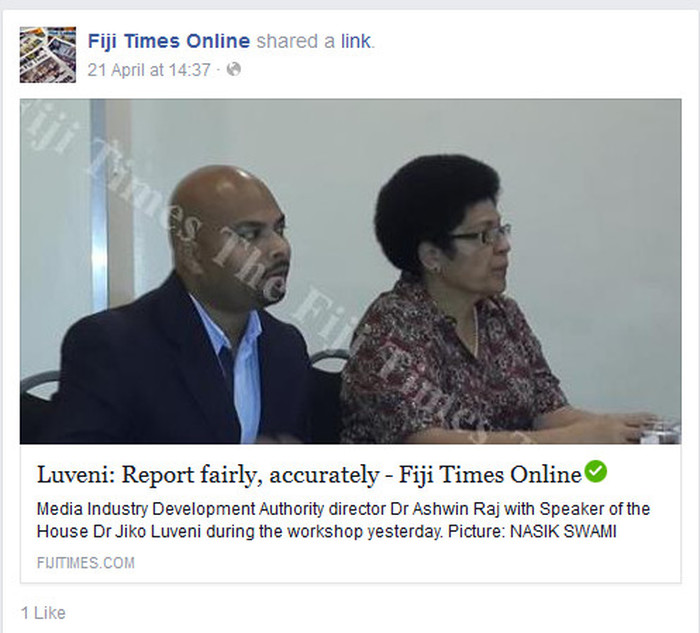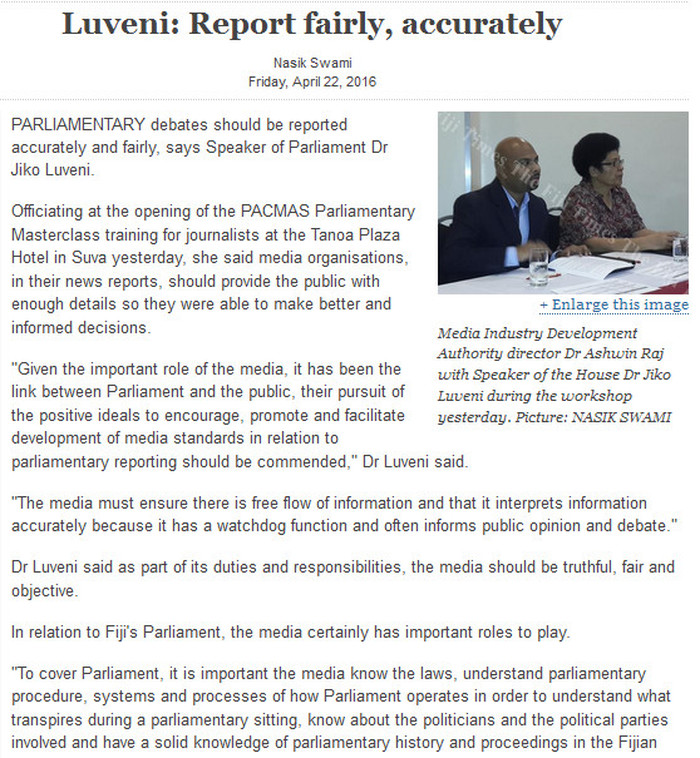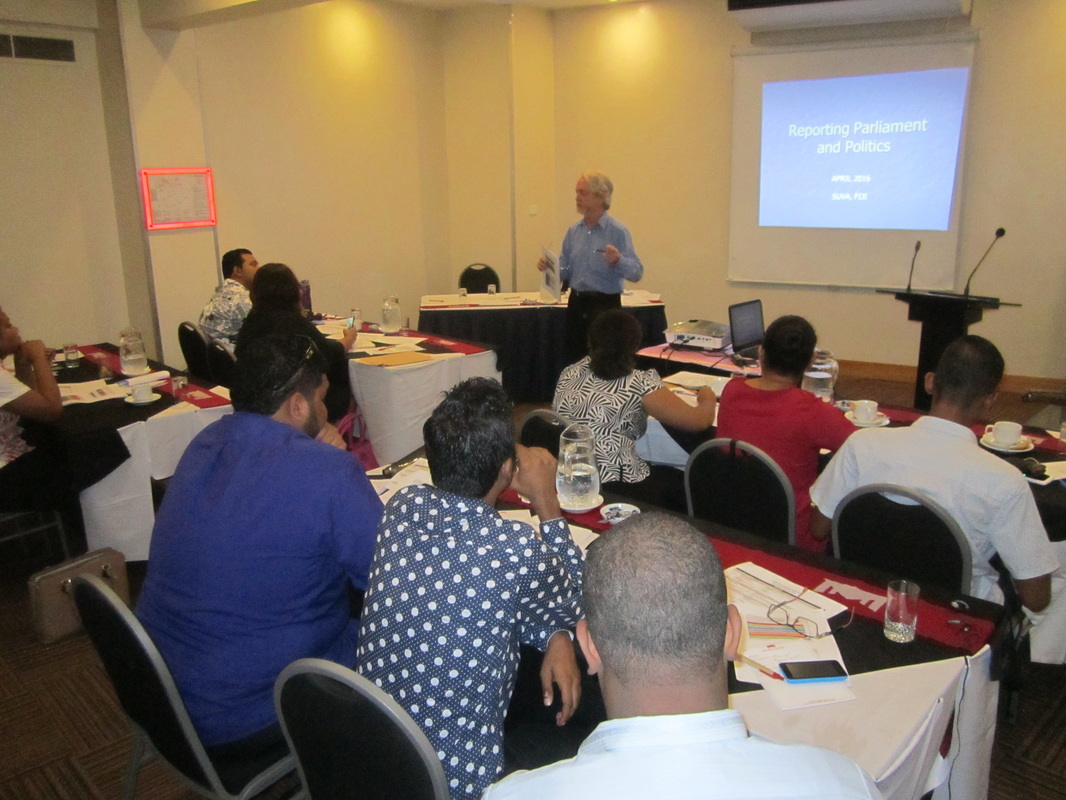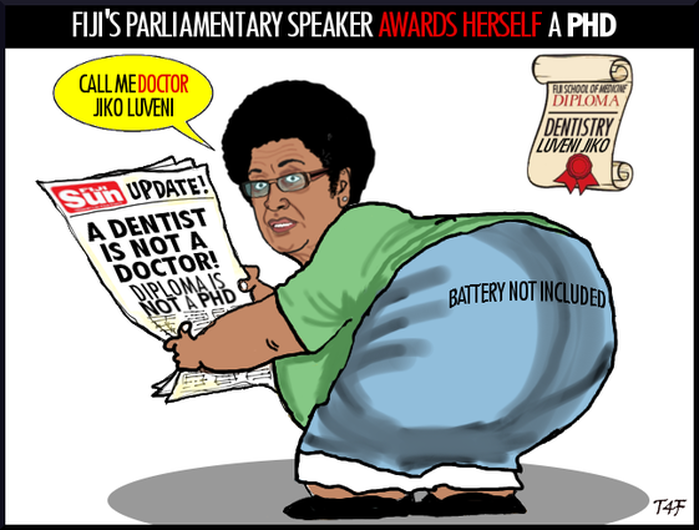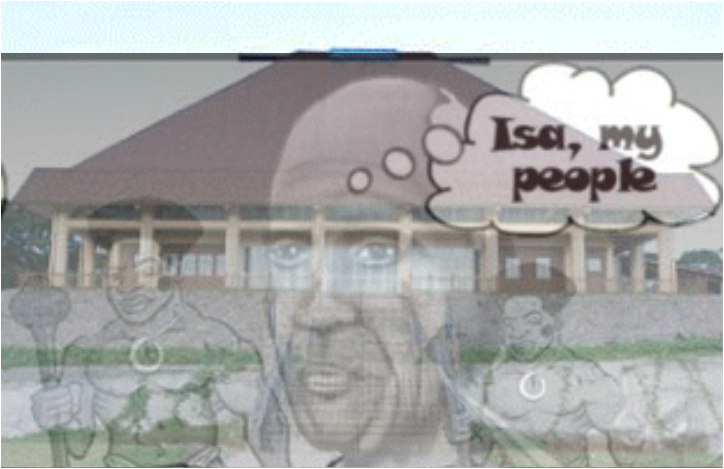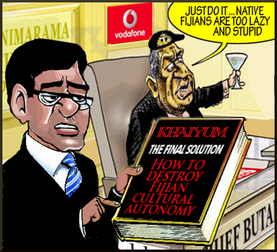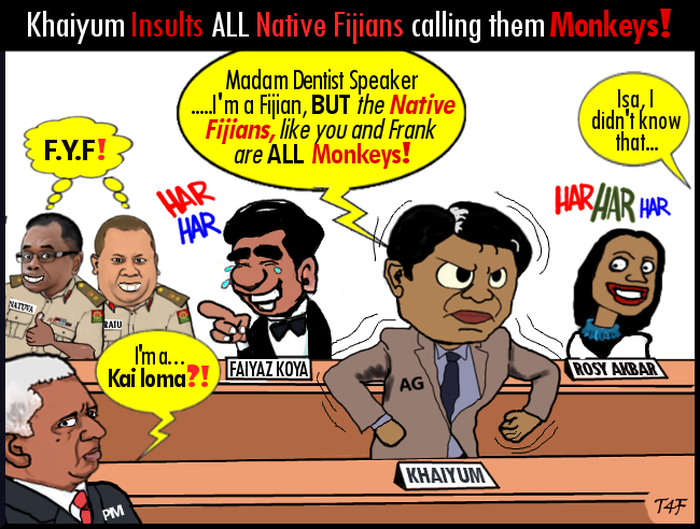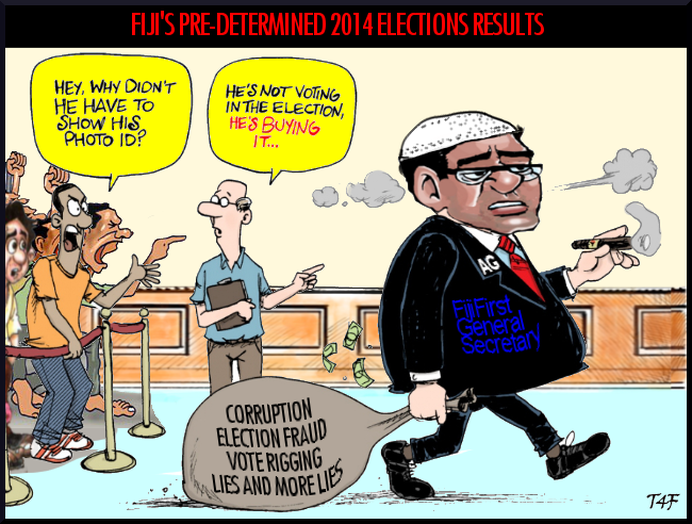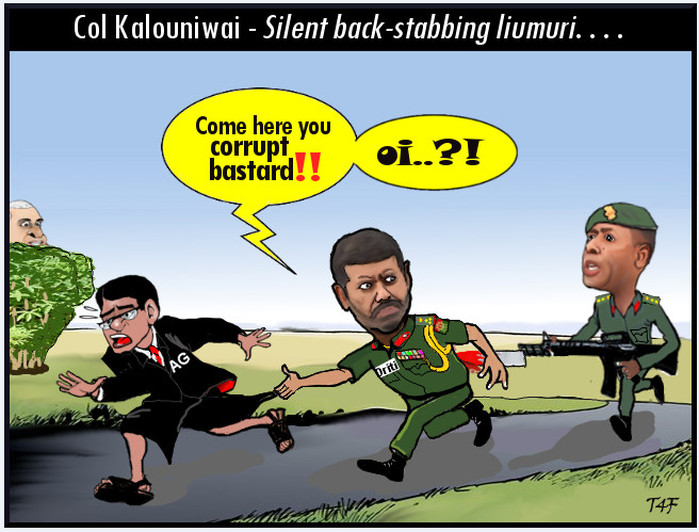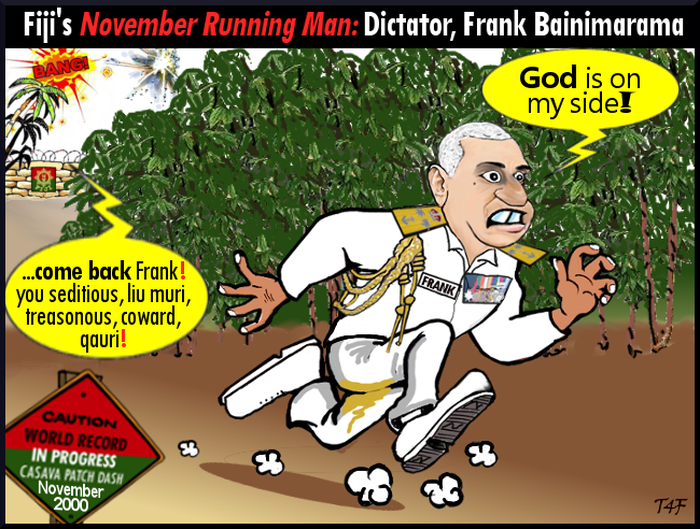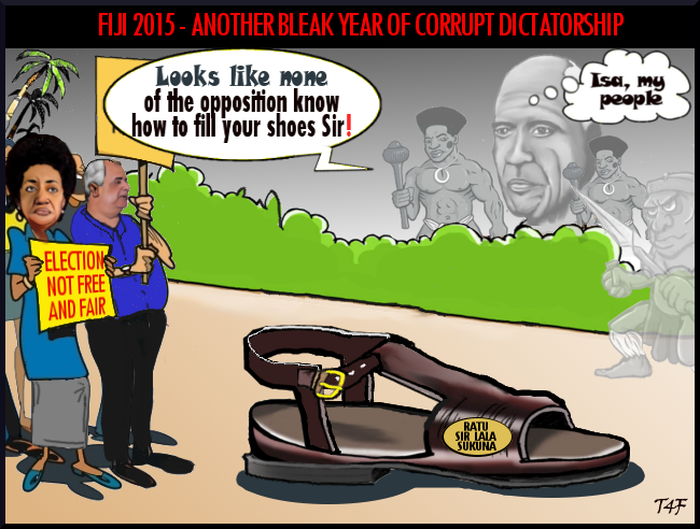Bainimarama right to reject public holiday but for wrong reason. As we have stated, if we want to mark "Coolie Celebration" - wait until 2020. But there is nothing stopping NFP/ Indo-Fijians from splashing thousands of dollars to celebrate what they consider an historical event in the calendar
National Federation Party with Tupou Draunidalo and Biman Prasad.
Yesterday at 5:15am · #FIJI'S SO-CALLED INCLUSIVE, RACE-FREE PRIME MINISTER, FRANK BAINIMARAMA REJECTS ANY COMMEMORATION OF THE ARRIVAL OF INDENTURED LABOURERS IN #FIJI.
The Prime Minister responded and said there will be no 100th anniversary celebrations and described the Motion BY #TeamNFP Party Leader, Professor Biman Prasad, as a political stunt. He said descendants of Indentured labourers are protected under the 2013 Constitution.
Hon Professor Prasad moved the Motion in this session and not the first session in February because the MPs were suspended as a result of the party's suspension by the Supervisor of Elections. The Motion was also moved in this session (the 2nd session of parliament) to allow for time to plan for events and activities leading up to what he had proposed as a one-off public holiday on November 11 - the day the last ship caring Indentured labourers arrived in Fiji in 1916.
Is the Prime Minister clearly trying to rewrite #Fiji's history and to ignore the indentured history of the ancestors of Fiji Indians - just as he and his Government are trying to rewrite the history of indigenous Fijians??
Yesterday at 5:15am · #FIJI'S SO-CALLED INCLUSIVE, RACE-FREE PRIME MINISTER, FRANK BAINIMARAMA REJECTS ANY COMMEMORATION OF THE ARRIVAL OF INDENTURED LABOURERS IN #FIJI.
The Prime Minister responded and said there will be no 100th anniversary celebrations and described the Motion BY #TeamNFP Party Leader, Professor Biman Prasad, as a political stunt. He said descendants of Indentured labourers are protected under the 2013 Constitution.
Hon Professor Prasad moved the Motion in this session and not the first session in February because the MPs were suspended as a result of the party's suspension by the Supervisor of Elections. The Motion was also moved in this session (the 2nd session of parliament) to allow for time to plan for events and activities leading up to what he had proposed as a one-off public holiday on November 11 - the day the last ship caring Indentured labourers arrived in Fiji in 1916.
Is the Prime Minister clearly trying to rewrite #Fiji's history and to ignore the indentured history of the ancestors of Fiji Indians - just as he and his Government are trying to rewrite the history of indigenous Fijians??
No public holiday to commemorate 100th anniversary of indentured labourers - PM

Prime Minister Voreqe Bainimarama said calling on the government to declare a public holiday to commemorate the 100th anniversary of the indentured labourers is a political stunt.
Bainimarama made the comment after NFP Leader Biman Prasad urged the government to declare a public holiday on the 11th of November, 2016 to commemorate the anniversary in recognition of the indentured labourers and their contribution to the developments in Fiji.
Prasad said 60,553 indentured labourers were brought from India between 14th May, 1879 and 11th November 1916. He said 11th November is when the indentured period ended.
The Prime Minister said there will be no public holiday.
He said in the wake of Tropical Cyclone Winston, most of the schools and homes and all other damaged public buildings and infrastructure need immediate and focused attention.
Bainimarama said rebuilding our future is the main priority.
He said as the Shadow Minister for Finance Biman Prasad’s major concern should be to cater for the desperate needs of the ordinary Fijians of all backgrounds.
He said history has shown us that when people suffered greatly because of their ethnicity, the greatest gift we can give them is to restore their dignity, give them the rightful place in the society and treat them as equals.
Bainimarama said the constitution guarantees them general equality, guarantees them equal vote and equal value, and that was the core demand of the NFP leadership in 1950s and 60s and it took the Fiji First government to finally deliver this. Source: Fijivillage News
Bainimarama made the comment after NFP Leader Biman Prasad urged the government to declare a public holiday on the 11th of November, 2016 to commemorate the anniversary in recognition of the indentured labourers and their contribution to the developments in Fiji.
Prasad said 60,553 indentured labourers were brought from India between 14th May, 1879 and 11th November 1916. He said 11th November is when the indentured period ended.
The Prime Minister said there will be no public holiday.
He said in the wake of Tropical Cyclone Winston, most of the schools and homes and all other damaged public buildings and infrastructure need immediate and focused attention.
Bainimarama said rebuilding our future is the main priority.
He said as the Shadow Minister for Finance Biman Prasad’s major concern should be to cater for the desperate needs of the ordinary Fijians of all backgrounds.
He said history has shown us that when people suffered greatly because of their ethnicity, the greatest gift we can give them is to restore their dignity, give them the rightful place in the society and treat them as equals.
Bainimarama said the constitution guarantees them general equality, guarantees them equal vote and equal value, and that was the core demand of the NFP leadership in 1950s and 60s and it took the Fiji First government to finally deliver this. Source: Fijivillage News

